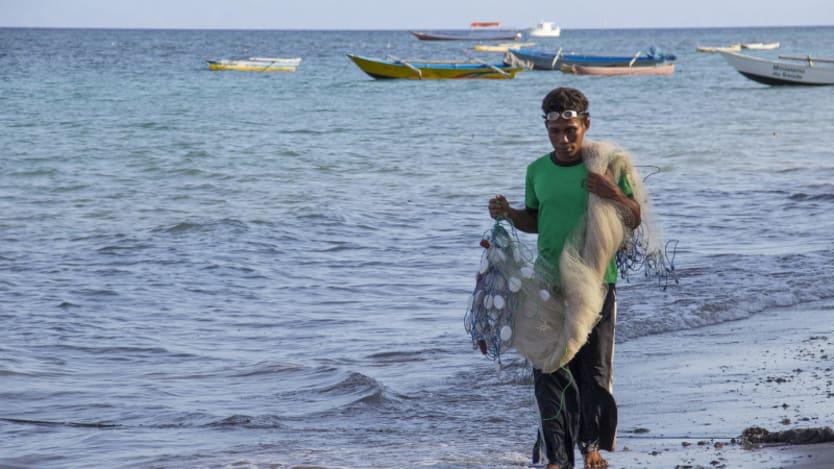
Illegal, unregulated and unreported fishing represents a dangerous threat to the environment, livelihood and health of Pacific Island nations — whose essential ocean resources are already under threat from the impact of climate change. Yet each year, it is estimated that 26 million metric tons of seafood are stolen from the world’s oceans, worth an estimated $26 billion. And associated with illegal fishing are human trafficking and labor exploitation to support this criminal industry.
At the final day of the World Economic Forum on Asean, held in Phnom Penh, a new hard-line strategy was announced to combat illegal fishing, with co-operation at its core.
The impact of illegal fishing on Timor-Leste
In Timor-Leste, fishing is part of the small Pacific nation’s culture, history and livelihood. Estanislau da C. Aleixo Maria Da Silva, the Timor-Leste Minister for Agriculture, explained at the WEF on ASEAN that urgent action needed to be taken to protect his country and people.
Lying between the Indian and Pacific oceans, Timor-Leste is considered a high biodiversity region with numerous protected species. Illegal fishing endangers the nation’s efforts at conservation and protection, at a moment when climate change is worsening the situation.
Takeaways from the World Economic Forum on ASEAN
Talk of connectivity and growth were high on the agenda at the WEF ASEAN, but ultimately the conference raised far more questions than it addressed. Devex looks at some of the key questions raised during the conference.
There is also a potential health impact to large-scale illegal fishing, said Da Silva. “We also need to protect the resources for our own people and human consumption,” he said. “For Timor-Leste the protein intake is one issue.”
Environmental vandalism goes hand in hand with human trafficking
Peter Williams, a country director with the International Justice Mission, explained that where there are illegal activities exploiting the environment, human trafficking is never far behind. With illegal fishing, he said there is enough documented evidence to show the two are directly linked.
But to date, there have not been enough prosecutions and convictions to threaten the value of the illegal industry. Williams believes tough measures and strong government action are the only way to combat the trade in resources and people.
A local response requires partners
Da Silva said his government was committed to strong action. They have implemented measures to ensure no staff on fishing boats are working as slaves. They have policies restricting where fishing can occur and what can be caught. Trawling is illegal. They limit fishing licenses on offer. And they check boats and catches, issuing large fines or revoking licenses if boats are found to have breached the strict laws.
The issue for Timor-Leste was resourcing to ensure no one slips through the radar.
A memorandum of understanding between Timor-Leste and Australia, Indonesia and Papua New Guinea is an important step in this process. Resources are shared to monitor and check boats as well as information on illegal activities that are identified.
But Williams said activities have to go beyond borders — it needs support from civil society and the private sector to ensure there is no market for illegal caught seafood.
A global response
Michael Hanley, head of digital communications for the WEF, said the forum had been doing a significant amount of work to track fish stocks and bring sectors together to tackle the illegal fishing challenge. As part of the outcomes, a traceability declaration focused on tuna — which has seen almost 90 percent of its stocks depleted globally — will be presented to the United Nations Oceans Sustainable Development Goal summit in June.
The creation of the non-binding 2020 Tuna Traceability Declaration was driven by the United Nations and supported by the leaders of the world’s biggest tuna retailers, traders and harvesters as well as civil society and government.
It will require organizations to work closely together to conserve and manage fish stocks. And companies will be required to fully disclose environmental management processes, where fish were caught, the vessels used and that no slavery was involved in supply chain. For customers, a full line of traceability will be provided at the point of sale.
“It is a hugely ambitious challenge,” Hanley said.
But for human rights and protection of critical global resources, it is challenge that needs to be accepted. And Da Silva challenged governments worldwide to stand together with Timor-Leste and take a stance against illegal fishing.
Read more international development news online, and subscribe to The Development Newswire to receive the latest from the world’s leading donors and decision-makers — emailed to you free every business day.
